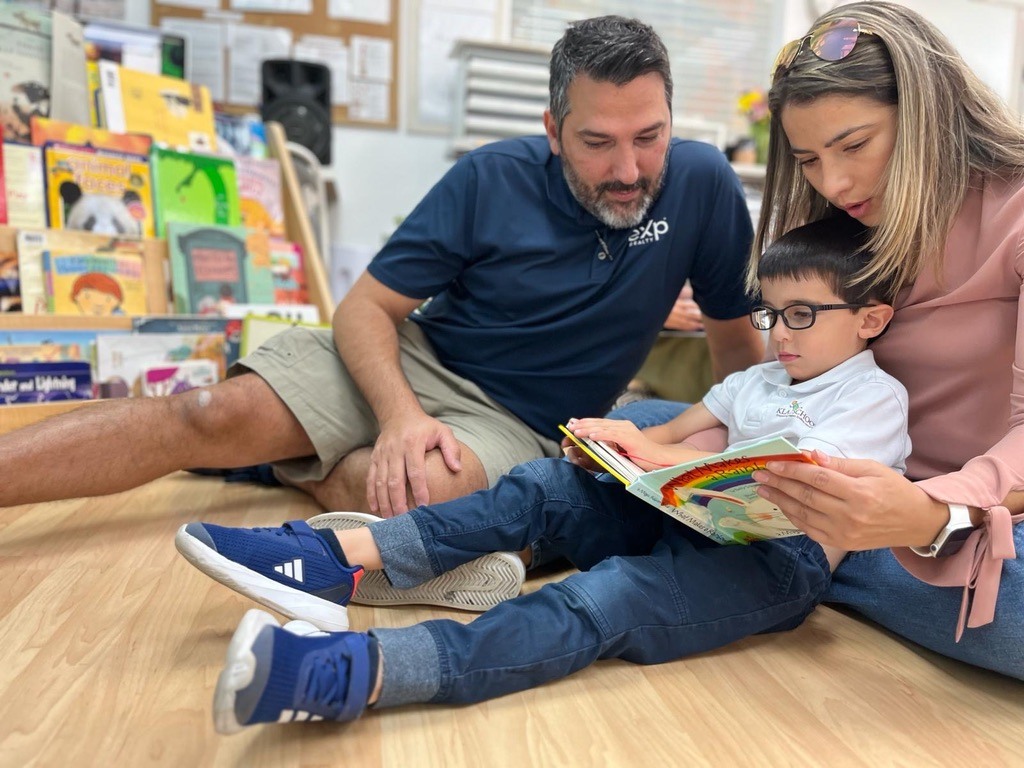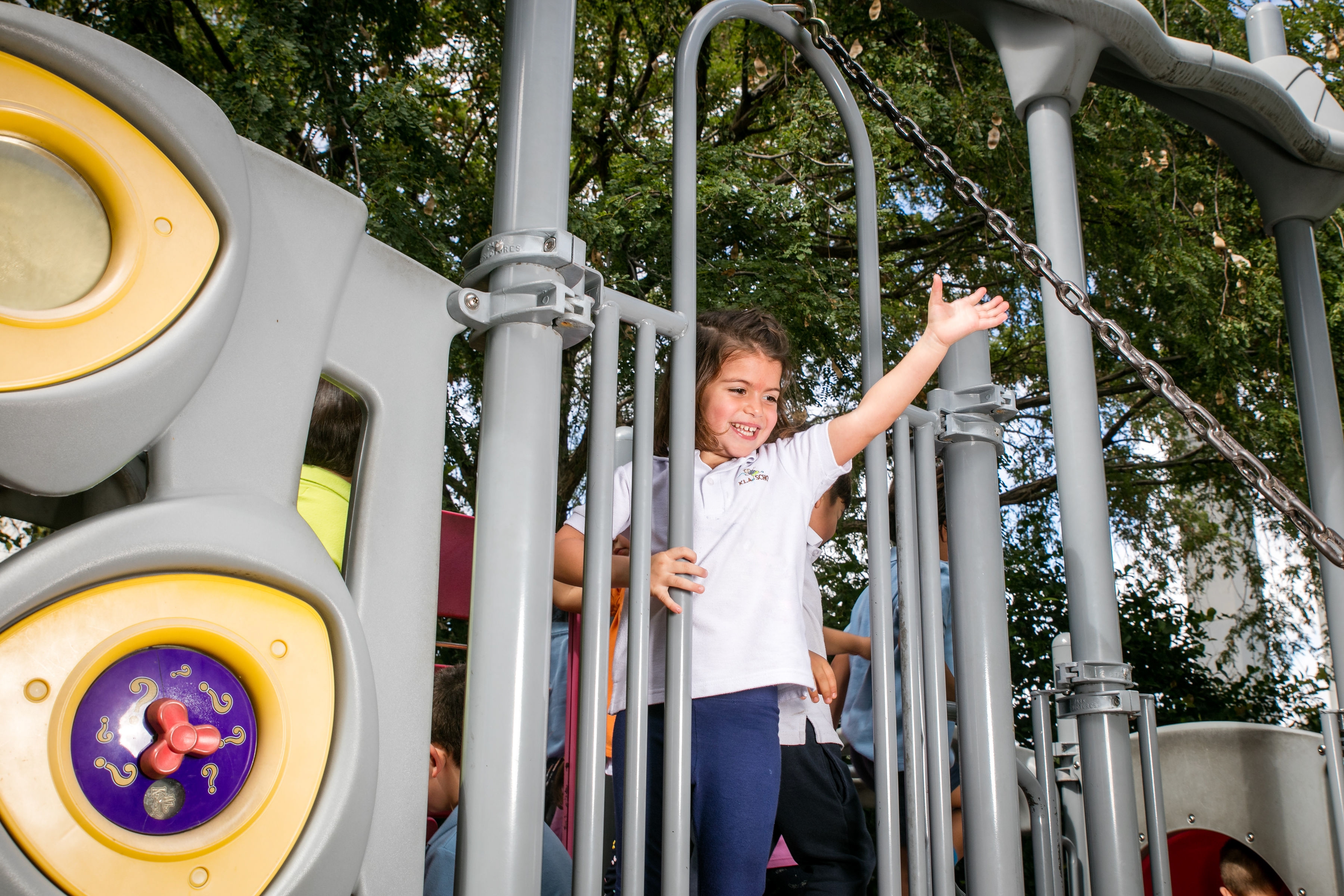Strategies for Fostering Cooperation in Early Education
Topics: Parenting
Age Range: Preschool
As adults, we understand that collaborating and working successfully with others is an essential life skill. Teamwork is crucial in problem-solving, relationship-building, and achieving shared goals in school, the workplace, or everyday interactions. However, young children are still developing their understanding of cooperation, learning how to communicate their ideas, listen to others, and navigate social dynamics.
At KLA Schools, we recognize the importance of fostering collaboration from an early age. Our learning environment is designed to encourage teamwork through interactive, cooperative play that helps children develop essential social skills. Through group projects, problem-solving activities, and open-ended discussions, children learn how to express their thoughts, respect different perspectives, and contribute meaningfully to a shared objective. Our educators guide and support these interactions, ensuring that children develop empathy, patience, and conflict-resolution skills—foundational qualities that will benefit them throughout their lives.
Encouraging collaboration at an early age helps children build strong relationships and enhances their communication abilities, emotional intelligence, and ability to adapt to different social situations. When children work together, they learn the value of cooperation, compromise, and collective success, setting them up for positive social interactions in school and beyond.
Why is Cooperative Play Important?
Cooperative play is essential to early childhood development, fostering teamwork, communication, and problem-solving skills. Unlike the solitary or parallel play, cooperative play involves children working together toward a shared goal, whether building a structure, completing a puzzle, or engaging in group storytelling. Through these interactions, children learn essential social skills such as sharing, taking turns, and resolving conflicts. This type of play also helps develop empathy as kids begin to understand different perspectives and work collaboratively with their peers. Educators and caregivers can encourage cooperative play by providing group activities that require teamwork, such as role-playing games, collaborative art projects, and interactive learning experiences. Engaging in cooperative play, children build meaningful relationships, enhance their communication skills, and gain a sense of belonging in social environments.
Here are some effective strategies to encourage your child to work together with others:
1. Model Teamwork at Home
Your daily life at home is an ideal opportunity to demonstrate cooperative behavior. Children learn best by observing adults; they are more likely to adopt similar behaviors when they see you collaborating with family members.
For example:
- Involve them in household tasks: Asking your child to help with simple chores, such as putting dirty dishes in the dishwasher or setting the table, allows them to see how their contributions support the family.
- Demonstrate problem-solving skills: If a disagreement arises at home, resolve it calmly and respectfully. This will teach our child how to approach conflicts constructively.
- Work on projects together: Activities such as gardening, cooking, or assembling furniture can be great opportunities to showcase teamwork.
2. Praise Cooperative Behavior
When children engage in teamwork, acknowledging their efforts reinforces the importance of collaboration. Positive reinforcement encourages children to continue working well with others.
For example:
- If your children are building a block tower, praise their ability to take turns and communicate effectively: “I love how you’re working together! You’re making an amazing tower as a team.”
- Use specific praise when they help others: “That was so kind of you to help your friend clean up the toys!”
- Encourage cooperation by highlighting the benefits: “See how much easier it is when we work together?”
3. Encourage Cooperative Play and Games
Studies have shown that children get along better when working toward a shared goal. Play is a natural and enjoyable way for young children to learn social skills, and choosing cooperative activities over competitive ones can help reinforce teamwork.
Some great cooperative games and activities include:
- Puzzles: Encourages problem-solving and teamwork.
- Relay races: Promotes coordination and cooperation.
- Jump rope: Requires children to synchronize movements and communicate.
- Duck Duck Goose: Teaches turn-taking and patience.
- Group art projects: Helps children collaborate on a shared creative vision.
Encouraging team-based games over competitive ones helps young children understand that working together can be fun and rewarding.
4. Teach Conflict Resolution Skills
Conflicts are natural in any social setting, and teaching children how to navigate disagreements positively is a valuable life lesson.
One effective way to do this is by asking open-ended questions and encouraging your child to think critically about problem-solving. For example:
- “If you and a friend want to play with the same toy, what could you do to make both of you happy?”
- “What would you say if a friend took your turn in a game?”
- “How do you feel when someone doesn’t share with you? What could you do to solve the problem?”
Keeping these conversations child-directed allows your child to examine situations independently and develop thoughtful solutions. You can also role-play different conflict scenarios to help your child express feelings, listen to others, and find fair solutions.
5. Foster a Cooperative Learning Environment
A child’s preschool or daycare is an excellent place to reinforce teamwork and cooperation. Early childhood educators are trained to encourage collaboration through group activities, cooperative play, and social interactions.
If you’d like specific advice on teamwork strategies for your child, ask your child’s preschool or daycare teachers for guidance. The educators at daycares and preschools have extensive experience working with children of diverse temperaments and personalities. They can offer insights based on the latest best practices in early childhood education.
6. Set Up Playdates That Promote Cooperation
When organizing playdates, choose activities that encourage teamwork rather than competition. For example:
- Baking or cooking a simple recipe together.
- Playing dress-up and acting out a story as a team.
- Creating a fort using pillows and blankets.
- Going on a nature walk and collecting items for an art project.
By setting up a collaborative environment, children naturally develop the ability to communicate, share, and take turns.
7. Read Books That Promote Teamwork
Books are an excellent tool for teaching young children about teamwork and cooperation. Reading stories where characters work together can help illustrate the value of collaboration in a relatable way.
Some great books on teamwork for preschoolers include:
- The Little Red Hen by Paul Galdone (teaches the importance of contributing and helping others)
- Swimmy by Leo Lionni (demonstrates how teamwork makes a difference)
- Stone Soup by Jon J. Muth (highlights cooperation and sharing)
- Duck! Rabbit! by Amy Krouse Rosenthal (teaches perspective-taking and working through disagreements)
- Teamwork Isn’t My Thing, and I Don’t Like to Share by Julia Cook (a fun way to address teamwork challenges)

Building a Strong Foundation for Teamwork
By modeling teamwork at home, praising cooperative behavior, encouraging cooperative play, teaching conflict resolution, and partnering with educators, you can help your child develop strong teamwork skills to serve them for a lifetime.
At KLA Schools, collaboration is a vital part of early childhood education. Our approach fosters social skills, problem-solving abilities, and a love for cooperative learning. Through cooperative play, group projects, and guided discussions, we encourage children to become active participants in their knowledge and engaged members of their community.
If you’re looking for a preschool environment that values teamwork and social development, contact KLA Schools today to learn more about our programs and how we can help your child build essential life skills through collaboration and cooperation.
